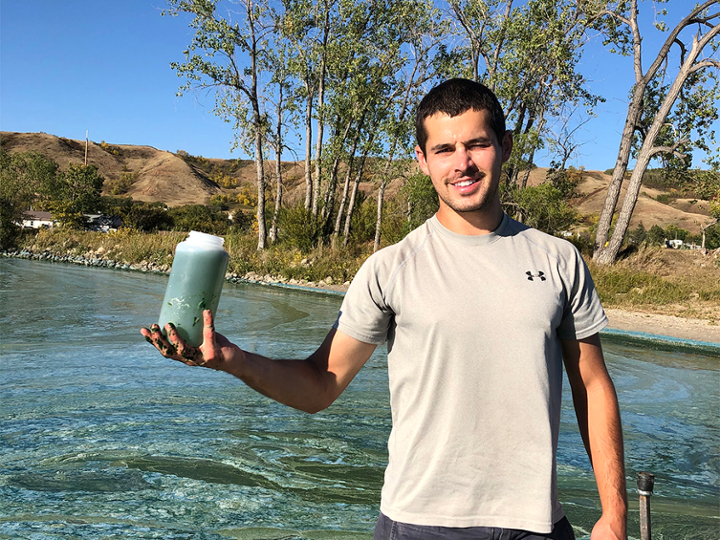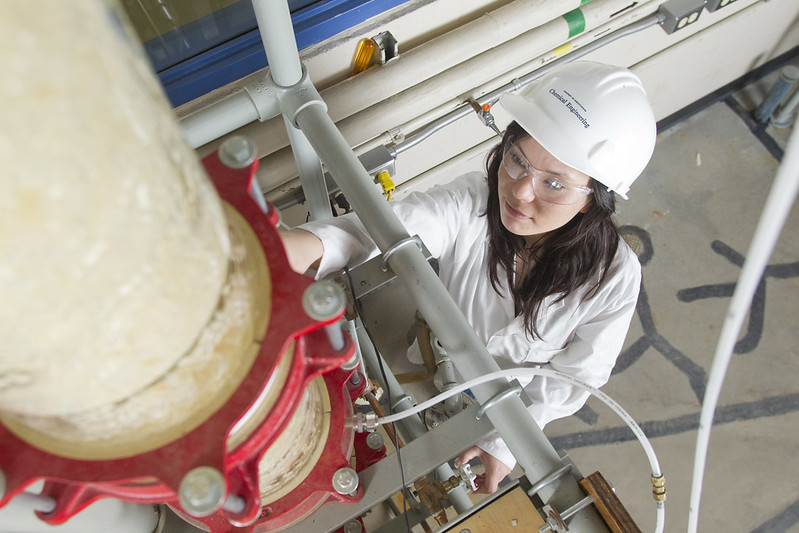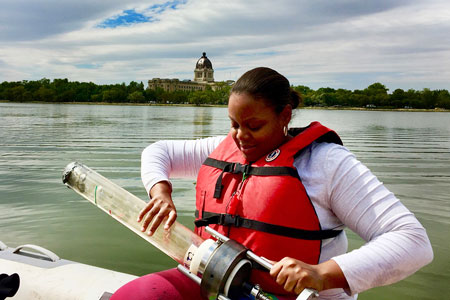EcoHack 2026
Sustainability News at USask
Loading...
Strategic Plan
Critical Path to Sustainability
This plan articulates how USask is taking major steps forward to contribute to the UN's Sustainable Development Goals 2030 to achieve a better and more sustainable future for all.
Commitment 1
Leverage Our Place
Commitment 2
Model the Way
Commitment 3
Empower Action
Commitment 4
Capitalize on Strengths
Commitment 5
Catalyze Social Change
Sustainability Initiatives
To achieve sustainability, we will need to build on the many initiatives already underway on campus, identify where areas of improvement and new initiatives may lie, and then forge ahead. With only 10 years remaining before the United Nations 2030 deadline, we need to be unapologetically ambitious and appropriately impatient in our actions on sustainability
Here are some of the steps we are taking to advance our goals:
Climate Action
Tracking, reducing, and mitigating our greenhouse gas emissions.
Energy Use and Generation
Optimizing energy efficiency and supporting energy generation including solar arrays and panels, lighting retrofits, etc.
Green Buildings
Integrating green building standards and practices into the planning of new buildings and renovations
Outdoor Spaces
Using the most innovative and sustainable practices possible including irrigation, xeriscaping, composting, etc.
Transportation
Increasing the quality and use of sustainable options (public transit, carpooling, cycling and walking) for travel to, from and within the campus.
Water Use
Using water efficiently, wisely and responsibly including replacing wasteful water aspirators.
Waste Management
Focusing on the waste hierarchy, particularly reuse, recycling, reduction (including composting, sustainable printing, open textbooks, etc.)
Purchasing
Identifying and buying products that adhere to sustainable standards.
Academic Opportunities

Sustainability Courses
The Office of Sustainability keeps an up-to-date inventory of its current offerings for sustainability-focused or -inclusive courses. As we develop upon the commitments laid out in Critical Path to Sustainability, these course offerings will expand, bringing sustainability concepts and perspectives to all disciplines of study.

School of Environment and Sustainability
The School of Environment and Sustainability (SENS) offers four graduate degree options. The school seeks to bridge multiple disciplines across the natural, physical, social sciences, as well as the humanities and engineering to address the most challenging environmental and sustainability issues we face. Having been established in 2007 with over 100 alumni, our students benefit from innovative, forward-thinking mentorship of interdisciplinary researchers and practitioners as they are guided through exploratory exercises that emphasize critical thinking and alternative ways of knowing.

Undergraduate Environmental Programs
Our diversity of programs offer students an opportunity to explore many aspects of

Undergraduate Certificate in Sustainability
Coordinated through SENS, the undergraduate Certificate of Proficiency in Sustainability enriches a student's current degree program and helps them stand out from the crowd following graduation. By providing significant exposure to sustainability-related concepts and practices, students gain an understanding of how to integrate human-environmental systems within our current reality and how to critically evaluate sustainability efforts. Students choose their elective courses from one of three areas of focus: natural resources and sustainability, community and sustainability or food systems and sustainability.
Research

USask's Research Plan focuses on “Discovery the World Needs” — the knowledge that our work is germane to the challenges of our era and will contribute to the social, cultural, ecological and economic goals of the communities we serve.
Signature areas of research
Our six signature areas of research address global sustainability challenges and opportunities:
- Agriculture: Food and Bioproducts for a Sustainable Future
- Water Security: Stewardship of the World’s Freshwater Resources
- Energy and Mineral Resources: Technology and Public Policy for a Sustainable Environment
- One Health: Solutions at the Animal-Human- Environment Interface
- Synchrotron Sciences: Innovation in Health, Environment and Advanced Technologies
- Indigenous Peoples: Engagement and Scholarship
Research Facilities
Usask's world-leading research in areas of global importance, such as water and food security and infectious diseases is enhanced by our outstanding facilities, including the Global Institute for Food Security and the Global Institute for Water Security.
Sustainability Research Inventory
The Office of Sustainability keeps an up-to-date inventory of its sustainability-focused or -inclusive research. As we develop upon the commitments laid out in Critical Path to Sustainability, the scope and inclusivity of this research will expand, bringing USask's world-class researchers to the forefront of innovative solutions to sustainability issues.
